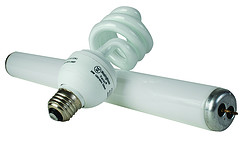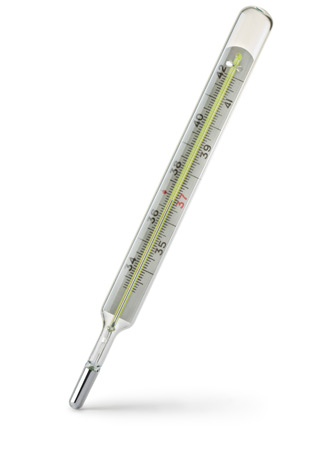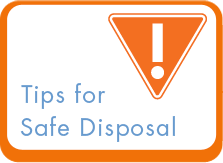Mercury is a toxic metal that is harmful to humans and the environment in very small quantities.
Mercury is found in common household products:
- Lighting: Fluorescent and high-intensity light bulbs and tubes
- Older thermostats and thermometers, which are not digital
- Pesticides
To eliminate the risk of pollution and accidental exposure, choose products without mercury and dispose of old products properly.
Mercury Pollution in Seafood
Exposure to mercury can cause a string of harmful health effects, including, birth defects, blindness, paralysis, neurological and muscular disorders. Both naturally-occurring mercury and mercury pollution are found in sediment and rivers, oceans and other water bodies. When mercury is in water, it can bio-accumulate in animals.
Bioaccumulation is the process by which mercury builds up in organisms like plankton, small fish, large fish and people over time, since these organisms absorb mercury faster then they eliminate it.
Biomagnification is the process by which mercury becomes more concentrated as it passes up the food chain. This exposes those higher on the food chain, like large fish and people, to more mercury than those lower on the food chain, like plankton and small fish. Both of these processes result in mercury in your fish and on your plate.
Learn more about which seafood is safe to eat.
Tip #10: Should I eat fish caught in San Francisco Bay?
Tips for Healthy Homes
Mercury in Products
Lighting
When possible, choose LED lighting because it does not contain mercury and is energy efficient. Fluorescent and high-intensity discharge bulbs contain small amounts of mercury but will not cause harm unless the lamp breaks or is discarded. Incandescent bulbs do not contain mercury, but are not energy efficient.
If you choose to buy bulbs containing mercury, use the following criteria:
- Choose low-mercury products (containing under 5 milligrams of mercury)
- Choose tubes and bulbs with the longest lamp-life possible (at least 10,000 hours for compact fluorescent light bulbs)
- Choose lead-free products
Bulbs containing mercury have special handling and disposal requirements:
Safely clean up broken products.
Safely dispose of burnt out products.
Thermometers and Thermostats
Mercury used to be in glass thermometers and household thermostats. In 2000, thermometers containing mercury were banned from being sold in San Francisco.
New digital and mercury-free technologies are now available for both thermometers and thermostats.
Safely dispose of these glass thermometers and household thermostats to eliminate the risk of exposure or pollution.
Pesticides
Pesticides sold prior to 1992 may contain mercury. Do not apply older pesticides.
Safely dispose of pesticides
Additional Resources
Mercury Thermometer Ban, San Francisco City Ordinance (PDF)
Mercury in Consumer Products




